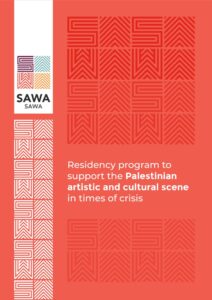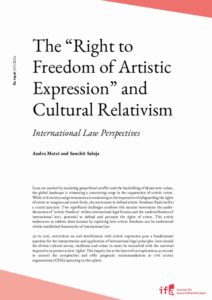 The programme aims to support Palestinian artists residing in Jerusalem or the West Bank or originally from Gaza and living abroad, of various disciplines, generations, and origins, helping them develop research and creation projects in contemporary arts. A second call for applications is now open for 3 to 6-month residencies in France to be carried out at French cultural institutions venues and will take place between January 2025 and December 2025.
The programme aims to support Palestinian artists residing in Jerusalem or the West Bank or originally from Gaza and living abroad, of various disciplines, generations, and origins, helping them develop research and creation projects in contemporary arts. A second call for applications is now open for 3 to 6-month residencies in France to be carried out at French cultural institutions venues and will take place between January 2025 and December 2025.
Submission of applications until August 20th, 2024. The selection process will be coordinated by the French Institute of Jerusalem, in collaboration with the program partners.
More information and application via this link.


